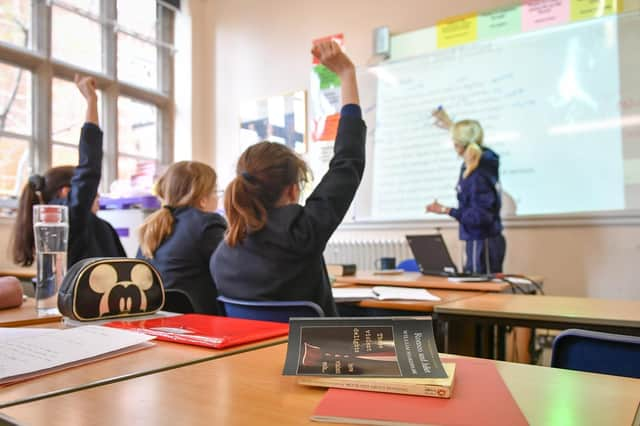Statistics show continuing slide in school standards - Sue Webber


The Programme for International Student Assessment of attainment at 15 years old exposes the extent to which the abilities of secondary school pupils are falling, with all three tests in maths, science and reading at their lowest level since devolution.
The students aren’t getting more stupid, so the failure is entirely the fault of the Scottish education system, and no-one should need reminding this has been the SNP’s responsibility for the past 17 years. Put another way, every young person born after 2002 has only ever experienced a school system controlled by the SNP.
Advertisement
Hide AdAdvertisement
Hide AdSince they came to power in 2007, the number of English teachers has fallen by 360, there are 330 fewer maths teachers, and 200 fewer computing science teachers, and with the widely disparaged Curriculum for Excellence programme, those PISA results shouldn’t be that surprising.
Now vast numbers of pupils are just staying away, with a staggering 32 per cent classed as persistently absent, missing more than 10 per cent of classes. In England it’s 23.5 per cent, so like the PISA results (and Scotland’s appalling and worsening drug deaths record) the SNP can’t indulge in the usual knee-jerk “blame Westminster” reaction.
In secondary schools it is an astonishing 41 per cent – in Edinburgh it’s a comparatively low 32.5 per cent, still well over 7,000 pupils, but in East Lothian it’s a staggering 45 per cent − so no wonder the PISA results are on the slide if nearly a half are missing over a tenth of their lessons. Parents have a responsibility too, with some 58,000 Scottish pupils missing between a week and a fortnight for term-time holidays.
Two years ago, a report from England’s Children’s Commissioner Dame Rachel de Souza DBE laid out actions needed to get more children back in school, so why are we only waking up to the problem now when the need for action here is more acute?
Advertisement
Hide AdAdvertisement
Hide AdToo many people feel that school attendance is becoming optional, and absences won’t matter that much, and no prizes for correctly guessing that the attendance deteriorates in poorer areas.
Part of the explanation must be that what goes on in schools is not sufficiently engaging or compelling for it to matter that much, and the other obvious conclusion is that the repercussions for persistent absence are insignificant. You can’t exclude recalcitrant pupils from the football or hockey teams or dance classes if you don’t run them.
But the statistics aren’t just about truancy, and what stood out to me was the rise in the number of pupils with additional support needs, up from 16,478 primary school children in 2007 to 116,923, nearly a third of the total roll. It’s the same picture in secondaries, with 134,371 needing assistance, 43 per cent of the roll, up from just 4.3 per cent in 2007, and virtually all were taught entirely in mainstream classes.
It all adds up to an enormous strain in the classroom. More children needing special attention, more children lost when they actually turn up because they have missed vital lessons, and fewer teachers. No wonder, like the pupils, they are voting with their feet.
Sue Webber is a Scottish Conservative Lothian MSP